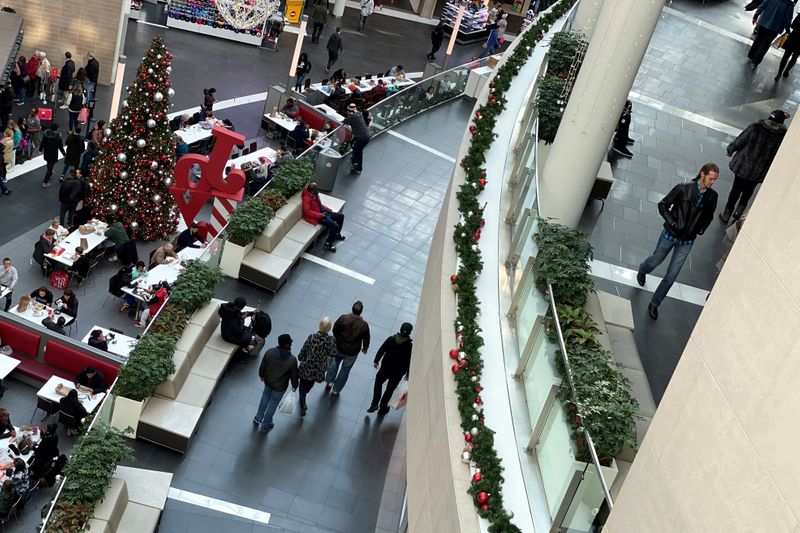(Reuters) - The wealthy in America are expected to splurge online for gifts and home decorations this holiday season, even as the COVID-19 pandemic erodes sales growth to the slowest in at least a decade, according to a forecast from Deloitte.
U.S. retail sales are expected to inch up 1% to 1.5% to as much as $1.15 trillion between November and January, led by a 25% to 35% rise in e-commerce sales, the consultancy firm said.
While the overall rise in sales would be slower than previous years, Deloitte's U.S. retail and distribution leader Rod Sides said a surprise increase in back-to-school spending and higher savings rates than last year showed demand could be strong between Thanksgiving and Christmas.
"We don't see many of the higher and upper middle income folks being impacted by job losses, so we think for that group holiday sales go up as much as 2% to 3%," Sides said.
Purchasing among lower income households will likely be flat to up just 1%, as the coronavirus lingers and the health crisis related government spending dries up.
Brick-and-mortar sales could fall as much as 3.4%.
Consumer spending, which accounts for more than two-thirds of U.S. economic activity, has shown signs of recovery, but July figures were still about 4.6% below February levels.
Big box chains are expected gain the most in the holidays as consumers consolidate shopping trips, Sides said, while independent main street stores could struggle.
Walmart (N:WMT), Target (N:TGT) and Home Depot (N:HD) have already seen their sales surge during the pandemic as revenue from their websites and apps showed unprecedented growth. But analysts said their supply chains could come under immense stress during the holidays.
Holiday sales last season rose 4.1%, compared to Deloitte's estimated 4.5% to 5% increase.

(Graphic: Holiday Season Sales Growth Expected To Slow Despite Online Boost, https://graphics.reuters.com/USA-HOLIDAYSHOPPING/oakveodjdvr/chart.png)